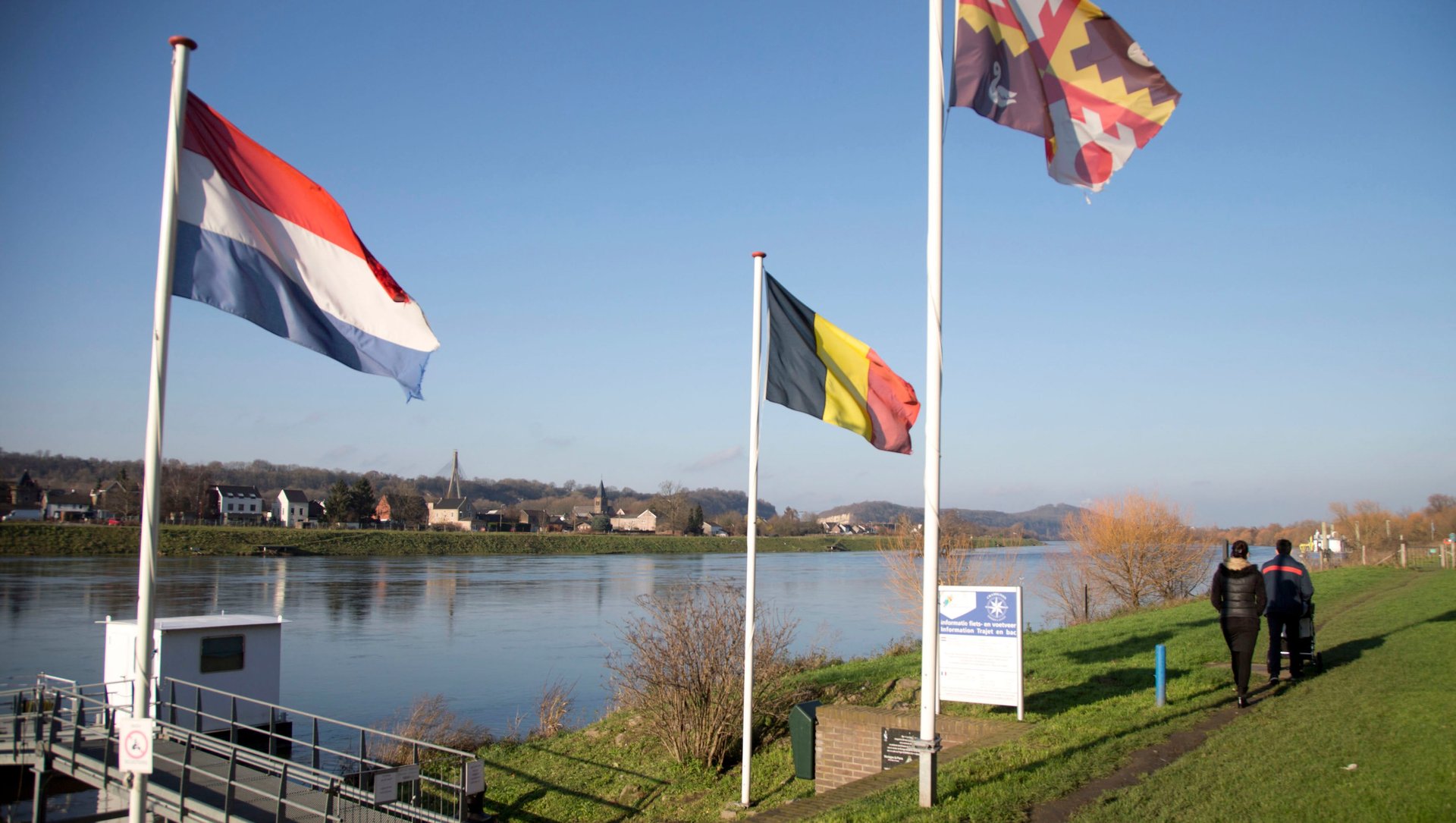“It makes sense”—Belgium and the Netherlands engage in a friendly border land swap
It’s not every day that the discovery of a headless corpse prompts a friendly land swap between two European nations. Yet that is precisely what has occurred between Belgium and the Netherlands.


It’s not every day that the discovery of a headless corpse prompts a friendly land swap between two European nations. Yet that is precisely what has occurred between Belgium and the Netherlands.
“It makes sense to do so,” Marcel Neven, the mayor of Vise, Belgium told the Associated Press about the exchange.
The agreement, which will be finalized in 2016, resolves a long-standing jurisdictional headache over a peninsula that lies across the Meuse River from Belgium and is attached to the Netherlands by land.
The peninsula, which is about the size of 15 soccer fields, is said to have become known as a haven for drug trafficking and other illegal activities ever since the Meuse River changed course and detached the land from Belgium, making it hard for Belgian law enforcement to properly patrol the land.
Three years ago, a couple walking on the peninsula came across a headless body. When they informed Dutch authorities of their discovery, they were told that it was Belgian territory and that local law enforcement could not go there. To investigate and settle the case, Belgian authorities had to come over to the peninsula by boat.
The case threw the border into the spotlight, prompting the resulting agreement between the two countries to swap land.
“We should have done it a long time ago,” Neven told the MailOnline.
Although Belgium will only get a tiny piece of land in exchange for the peninsula, the agreement has been a friendly one. This is primarily due to cordial relations between the two nations.
“It is possible between Belgium and the Netherlands because these countries have a lot of ties for centuries and after the Second World War territory was no longer that important,” Belgian military historian Luc De Vos told the AP.